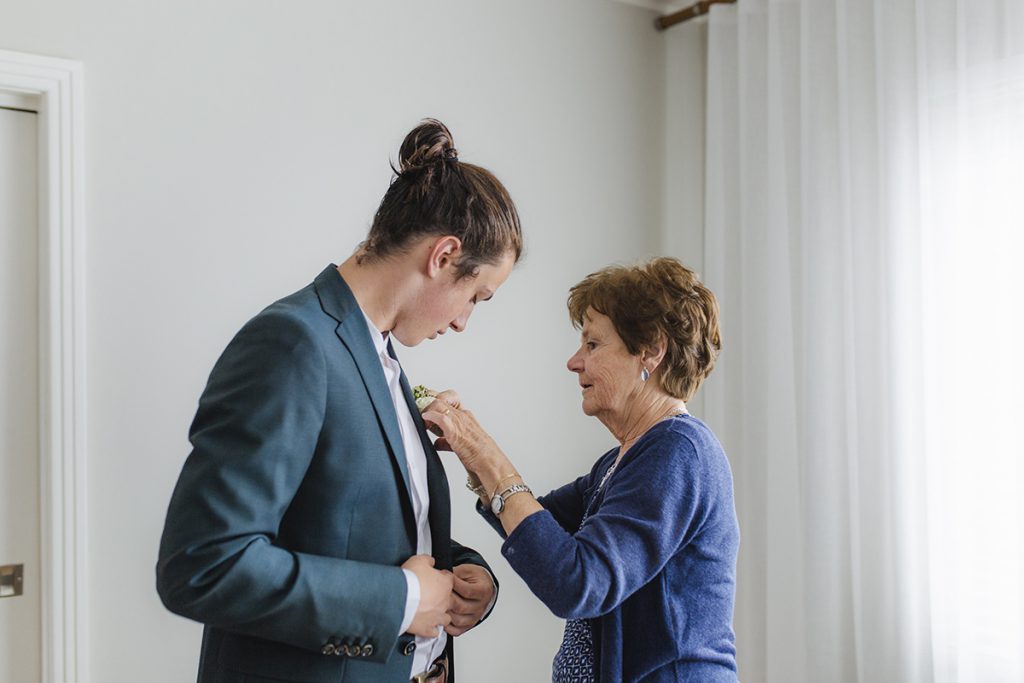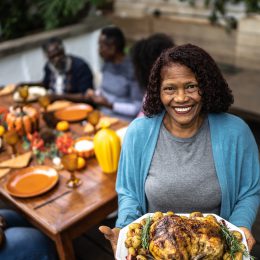How to Support Your LGBTQ Grandchild
It may not be what you expected, but you want the best for your grandchild no matter what. Here are three simple tips to help you navigate the waters.

Remember the moment you met your grandchild? It was love at first sight. And nothing can change that — even if your granddaughter shares that she’s lesbian or transgender or your grandson comes out as gay or bisexual. Whether you’re happy about the news or not, you love them just as much as ever and want to do whatever you can to keep them safe, healthy, and happy.
Sometimes, though, you’re the last to know. “We may worry that grandparents can’t handle the news about their grandchild’s sexuality because they’re from a different generation,” says David Huebner, Ph.D., a clinical psychologist and associate professor of prevention and community health at George Washington University in Washington, D.C. “We may fear they’ll be upset or judgmental. But I’m struck by how often grandparents surprise us, usually in positive ways.”
In fact, a 2019 survey from AARP found that 88 percent of grandparents said they would accept a grandchild who came out to them as LGBTQ (lesbian, gay, bisexual, transgender, and queer or questioning). And that acceptance is very important for your grandchild’s well-being. In a 2021 survey of nearly 35,000 LGBTQ youth, 62 percent reported symptoms of major depressive disorder, and 72 percent said they suffered from anxiety. Most worrisome of all, 42 percent said they’d considered suicide in the past year.
For many of those young people, help can be hard to find. Almost half of survey respondents said that they wanted counseling from a mental health professional but weren’t able to receive it. And only about 1 in 3 said that they felt affirmed within their own home.
That’s where you come in. A 2021 study published in Transgender Health found that transgender young people who felt a sense of acceptance from their family were less likely to attempt suicide. And grandparents can play an important role, especially when there’s trouble between the parents and kids.
Maintaining a good relationship with your grandchildren has all kinds of benefits. In a study of kids whose parents had gone through a divorce, a close relationship with Grandma and Grandpa helped them adjust. Plus, adolescents who are close to their grandparents report a greater sense of well-being.
“Be that kind of grandparent who shows your grandchild that you can offer a safe place of love and acceptance no matter what,” Huebner says. Not sure how? Here are three simple tips.
-
Listen with Love
If your grandchild comes out to you, listen to them with kindness and respect. “Acknowledge that you’ve received the information,” Huebner says, “and let them know that you love them no matter what.”
Let them freely express their feelings, especially if they’ve been having difficulty talking to their mom and dad. Welcome their friends into your home, take them shopping for an outfit they’ve been wanting, talk to them about an LGBTQ character you may have seen on a television show or in a movie. The activities themselves aren’t what matters. The point is to let your grandchild know that you’re still there for them, just as you have been all along.
-
Deal with Your Own Feelings — but Not in Front of the Children
“For most people, the statements ‘I love you’ and ‘I’m really uncomfortable about this’ can both be true at the same time,” Huebner says. “But you don’t have to share that discomfort with your grandchild. You’re not a bad person for feeling that way — your pain and discomfort are coming from a place of care and concern. But you do have a choice about what you do with those feelings.”
If you’re struggling to accept your grandchild, find someone to talk to about it — your partner or a close friend, a counselor, or an advocacy group like The Trevor Project (www.thetrevorproject.org).
-
Stay Open-Minded
In a study of more than 2,200 middle-aged and older men and women, those with the psychological trait of openness — meaning they were curious and eager to explore new ideas — were less likely to experience a decline in general knowledge. Plus, they retained their ability to think logically well into old age.
“Retirement and older age is a time when many people want to keep exploring new ideas,” Huebner says. “Those who are curious and interested try to make sure their lives continue to expand and grow — it’s a time for reading and travel and openness to new things.”
Subscribe to our newsletter
It's quick and easy. You could be one of the 13 million people who are eligible.
Already a member? Click to discover our 15,000+ participating locations.
Follow Us
So wrapping your head around a whole new way of knowing and understanding your grandchild can potentially improve your brain health and enrich your life in unexpected ways.
“One thing we often hear from families whose child has come out is how surprised and delighted they are that having an LGBTQ kid has expanded their world,” Huebner says. “This is particularly true for grandparents, who often view it as a surprising gift. They may view their grandchild’s announcement as an opportunity to learn something new.”
As usual, knowledge is power. You don’t have to earn a degree in gender studies, but it can help boost your understanding — and improve communication — if you learn some of the lingo. Check out this helpful glossary from PFLAG.
“Don’t get yourself tied up in knots figuring out how to talk to your grandchild,” Huebner says. “Whatever it is that connects the two of you, just keep doing that. So get yourself educated, but keep on baking cookies.”
Take Your Favorite SilverSneakers Classes Online!
SilverSneakers members can access live fitness classes and wellness workshops through SilverSneakers LIVE. See the latest schedule and RSVP for classes here.
Not a member? If you have a Medicare plan, it may include SilverSneakers — at no additional cost. Check your eligibility instantly here.





